16 Days of Activism: No Excuse for Violence Against Women
Statistics reveal a troubling rise in domestic and gender-based violence cases over the past few years. Comparing 2022 to 2023, the Belize Police Department reported a five percent increase, with one thousand, two hundred and fifty cases in 2023 alone. Today kicks off Sixteen Days of Activism, featuring a series of special events aimed at combating gender-based violence. This year, the National Women’s Commission is determined to make a difference with the theme: ‘No Excuse for Violence Against Women and Girls.’ News Five’s Marion Ali has the story.
 Marion Ali, Reporting
Marion Ali, Reporting
Everyone remembers the horrifying ordeal of a twenty-three-year-old pregnant woman from Belmopan who was held hostage for days and subjected to physical, sexual, and emotional abuse by her common-law husband and his family a few weeks ago. The vivid images of her wounds tell a harrowing story of what she endured. This week, we also heard about the terrifying experience of San Pedro resident Sabella Brakeman, allegedly at the hands of her estranged husband, Kenny Brakeman. These women’s stories painfully highlight what many others suffer at the hands of their partners or someone they know. And today, the launch of the Sixteen Days of Activism aims to inform victims like Sabella and the pregnant woman that they can access help before the situation reaches that stage. Often, the victim is a woman.
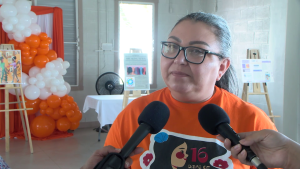
Thea Garcia-Ramirez
Thea Garcia-Ramirez, Chairperson, National Women’s Commission
“We are telling women, report, even if you choose then not to take it to court, not to have press charges, report it, report it, report it, so that we know what’s happening. Report it for future action, report it. to have it documented so that when you need to have a restraining order or you make up your mind that you need to have a restraining order, there is a clear history of abuse of violence, and you are able to get that quicker. Don’t sit at home and feel like this is normal. It helps us to know how many cases there are for resource allocation so that we can show the people that make policy, that assign budgets and resources, say, look at this, we need more social workers, we need more socio-economic help. Psychosocial help.”
Thea Garcia-Ramirez, Chair of the National Women’s Commission, pointed out that too often, the very cultures we celebrate also harbor elements of gender-based or domestic violence, and it all begins at home during childhood.
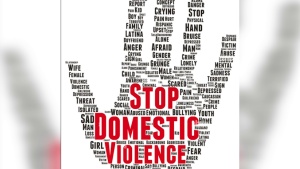 Thea Garcia-Ramirez
Thea Garcia-Ramirez
“If you don’t know how to knead, and if that tortilla does not come out round, or if that fry jack nuh puff, and dem beat you, well you’ll look for it because you need to know these things. And so, it’s kind of ingrained, and then when it happens to you, when you are an adult in a union or a marriage, then it – my grandma tell me this may not happen anyway. So, it sort of gets normalized.”
President of the Senate, Carolyn Trench-Sandiford, shared her personal experiences with gender-based violence from her childhood on Alexandria Street, where such violence was sadly seen as normal.
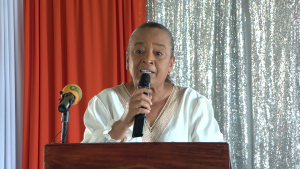
Carolyn Trench-Sandiford
Carolyn Trench-Sandiford, Resident, Belize City
“I could never forget my first experience. Now at the time it happened, you don’t know that what was happening was not right. But within our society, it was normal. Because we had a couple who the man, the husband, was an alcoholic. It was normal. At that time we didn’t know words like someone is an alcoholic and what flows from being an alcoholic. And whenever that person drank, everybody knows the wife may get into it. It was as simple as that. And you would hear the noise, you would hear the screams, and there were children in that environment as well. But you also heard it’s not your business, you’re not to get involved. When two head goh pahn pillow da night, dehn wa cuss you out. So you’re not to get involved and say anything about it.”
Many women find themselves in domestic situations where they’re expected to shoulder more of the workload just because of their gender. This, too, is a form of gender-based violence, as Ramirez pointed out.
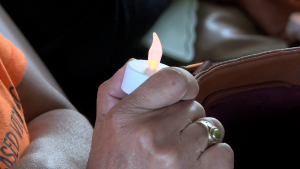 Thea Garcia-Ramirez
Thea Garcia-Ramirez
“Women who work a regular eight to five job and have to come home and do unpaid work, work at home for at least five or six hours every day more unpaid and the man if she has a husband or a partner comes home does a regular eight to five but he go home tired and can watch TV and does nothing to help around the house and that is normalized and that is violence. That is economic violence, that you both work, your both live, come home and do your share as well. But that is also normalized because that’s not a woman’s job and that’s not a woman’s work. So if you have a separate job, earning money to help pay the bills, you still have to come home and do that, and we normalized that.”
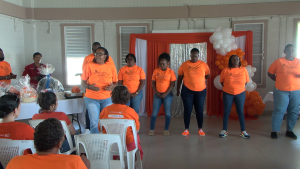 The commission’s staff made a short presentation titled “No Excuse” that reflected a part of this year’s theme.
The commission’s staff made a short presentation titled “No Excuse” that reflected a part of this year’s theme.
Thea Garcia-Ramirez
“He gets upset for no reason and slaps me in the head. He’s not himself. He had a bad day at work. He is not a hungry jerk. No excuse! Cooking in the kitchen, I’m behind just a bit late. When he came into the kitchen and stoned me with an dinner plate, he didn’t mean it, as the plate must have slipped, as he held it without a very tight grip.”
Marion Ali for News Five
Kidnapping Survivor Still Needs Your Help; Attacker On The Run





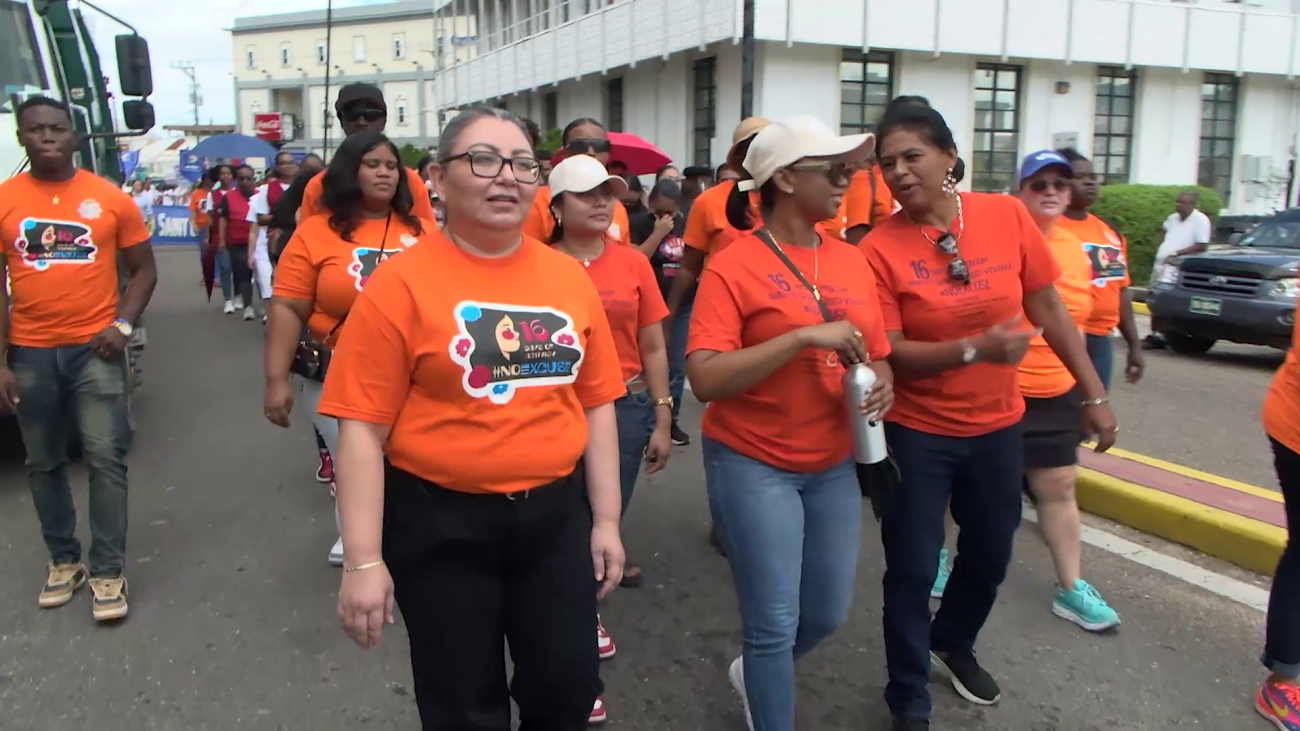
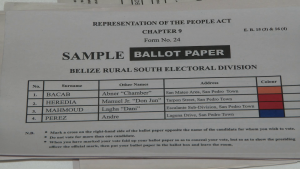
Facebook Comments